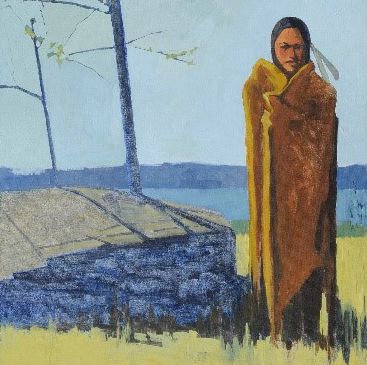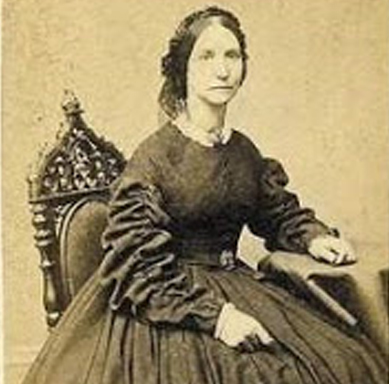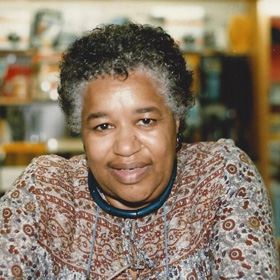A staunch abolitionist, activist, and educator at heart, Deborah Weston (1814 -????) was key in promoting anti-slavery ideals in Massachusetts, especially in New Bedford and Boston. Through her grassroots work in the Boston Female Anti-Slavery Society, she was able to raise much needed funds and drum up support for the anti-slavery movement within Massachusetts.
A staunch abolitionist, activist, and educator at heart, Deborah Weston (1814 -????) was key in promoting anti-slavery ideals in Massachusetts, especially in New Bedford and Boston. Through her primarily grassroots work in the Boston Female Anti-Slavery Society, she was able to raise much needed funds and drum up support for the anti-slavery movement within Massachusetts.
Deborah was born in 1814 to Warren and Nancy Weston in Weymouth, MA. The fourth eldest of their eight children, Deborah was sister to Maria Weston Chapman, Caroline Weston, and Anne Weston, who were known for their significant anti-slavery work. All of the Weston children helped on the family’s farm and went to local schools until they became of age, although Maria was the only one to complete her education (Goodwin). During her lifetime, Deborah was a teacher at many different schools across Massachusetts. For instance, Deborah and three of her siblings opened an all girls’ school in Boston in 1843 and often taught at Friends Academy in New Bedford. During her free time, Deborah preferred to stay in Weymouth, although she often travelled to see prominent anti-slavery speakers, such as Frederick Douglass (Goodwin; “The Weston Sisters”). She also liked to write, and kept significant correspondence with many people across Massachusetts, including her sisters and other anti-slavery advocates (Taber).
Her most important work, and the work she dedicated most of her life to, was invested in the anti-slavery movement. The Westons, even from a young age, were deeply involved with the movement. This involvement eventually culminated in 1834, when the older Weston sisters, including Deborah, founded the Boston Female Anti-Slavery Society (Goodwin; “The Weston Sisters”). The Boston Female Anti-Slavery Society was vital in promoting the anti-slavery cause in Massachusetts. In addition, Deborah played a key role in the success of the Society as one of the group’s main grassroots organizers. Not wanting a formal leadership role, she dedicated herself to grassroots efforts such as raising funds, collecting signatures, and other forms of activism. Preferring grassroots efforts, she wrote to her sisters saying, “I am never going to take upon myself the management of any society matters” (Chambers 109).
Her political involvement and activism were often at odds with the gender norms of the time period. During this time, women did not have the right to vote, and many people believed that women should not get involved in the political sphere. However, Deborah and her sisters went against these challenges in order to fight for something that they cared deeply about. Without their efforts, the anti-slavery movement in Massachusetts would have looked quite differently, and most likely for the worse. This activism continued up until the end of the Civil War and consequently the end of slavery in the United States. After this period, she mostly withdrew from public life until her death, although historians are unsure when she passed. Overall, Deborah Weston was a strong fighter for anti-slavery efforts, and the history of Massachusetts is better because of her and the entire Weston family.
CJ Belmore, University of Massachusetts Dartmouth, Class of 2022 (Elisabeth Arruda, University of Massachusetts Dartmouth Faculty Sponsor) with Ann O’Leary, Emily Bourne Research Fellow
Information from
- Boston Female Anti-Slavery Society. The Sixth Annual Report of the Boston Female Anti-Slavery Society. Dow & Jackson, 1839. JSTOR, https://www.jstor.org/stable/10.2307/60228056.
- Chambers, Lee V. The Weston Sisters: An American Abolitionist Family. U of North Carolina P, 2014.
- “Deborah Weston.” Portraits of American Abolitionists. Massachusetts Historical Society. https://www.masshist.org/database/1549.
- Goodwin, Joan. “Maria Weston Chapman and the Weston Sisters.” Dictionary of Unitarian & Universalist Biography. Unitarian Universalist History & Heritage Society, 27 Apr. 2001, http://uudb.org/articles/mariawestonchapman.html.
- Jeffrey, Julie Roy. “The Liberty Women of Boston: Evangelicalism and Antislavery Politics.” The New England Quarterly, vol. 85, no. 1, 2012, pp. 38–77. JSTOR, http://www.jstor.org/stable/23251364.
- Taber, Susan. Letter from Susan Taber, New Bedford, [Massachusetts], to Deborah Weston, 1838 [May] 22. Digital Commonwealth, https://ark.digitalcommonwealth.org/ark:/50959/2z1105122.
- Weston, Deborah. Diary by Deborah Weston, [Weymouth and Boston, Mass.], January 1, 1835, Thursday, [through Nov. 18, 1835, Wed.]. Digital Commonwealth, https://ark.digitalcommonwealth.org/ark:/50959/vm417w431.
- “The Weston Sisters.” New Bedford Whaling National Historical Park. National Park Service, 8 Jan. 2021, https://www.nps.gov/nebe/learn/historyculture/westonsisters.htm.
![[Deborah Weston]," c. 19th Century, Photograph, Massachusetts Historical Society, https://www.masshist.org/database/viewer.php?item_id=1549 sepia colored headshot of white woman. Her hair is pulled back and she is wearing a necklace.](https://historicwomensouthcoast.org/wp-content/uploads/2022/06/Deborah-Weston-239x239.jpg)




